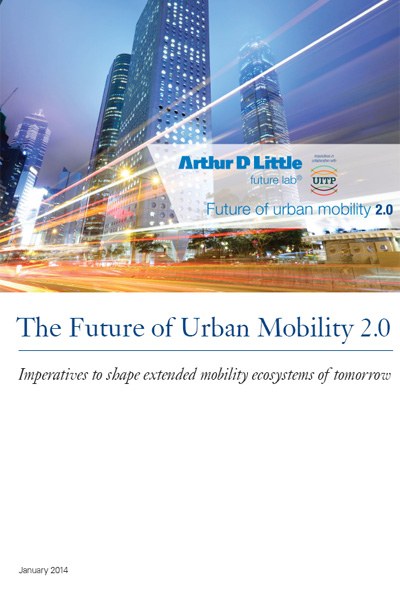Publications
The Future of Urban Mobility 2.0
Mobility has significantly evolved in the past, under the influence of industrial evolutions. Following the first industrial revolution enabled by the invention of steam powered technology, the railway industry emerged. The second industrial revolution with mass production enabled the emergence of the automobile industry and, closer to us, the third industrial revolution with digitalization enabled the emergence of computer-aided travelling (for example GPS in a car). Today we are entering what could be called a fourth industrial revolution, represented by industry and technology convergence, leading to the emergence of for example clean energy vehicles or connected mobility solutions. This evolution is particularly noticeable over past years in network industries (such as telecommunication and media, utilities and the mobility industry) as well as in B2C industries (such as retail and healthcare) where, driven by evolving customer needs and enabled by rapidly evolving technology, business models are continuously evolving.
|
Year of Publication |
2014 |
|
Co-Autor(s) |
François-Joseph Van Audenhove, Oleksii Korniichuk, Laurent Dauby, Jérôme Pourbaix |
|
Published by |
Arthur D. Little - Global Management Consultancy |
|
Pages |
72 |
|
Language |
English |
|
Order |


